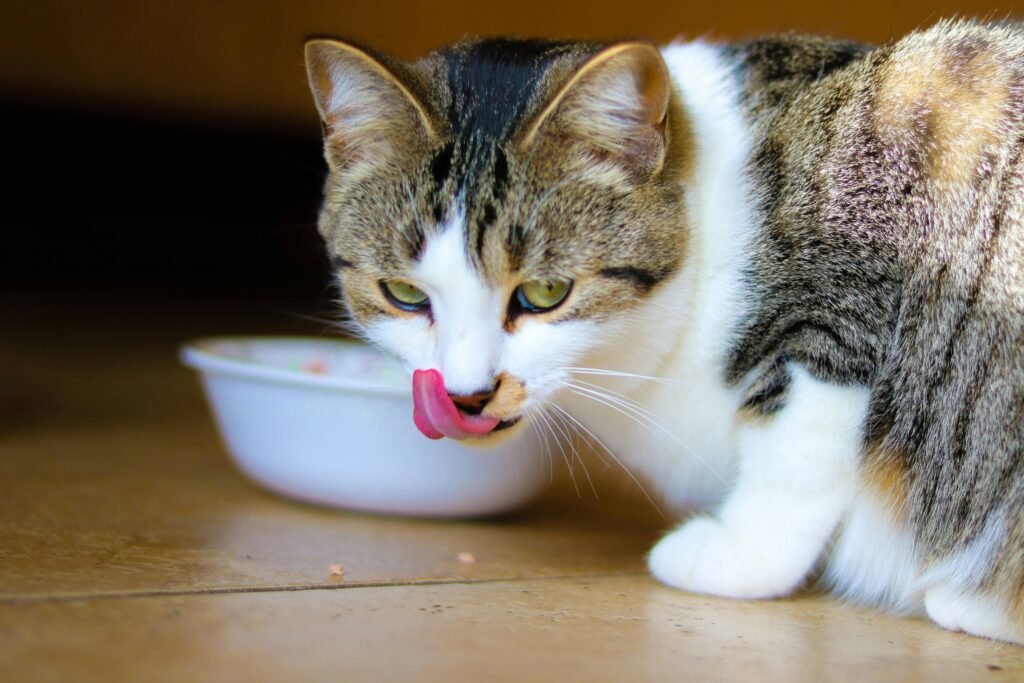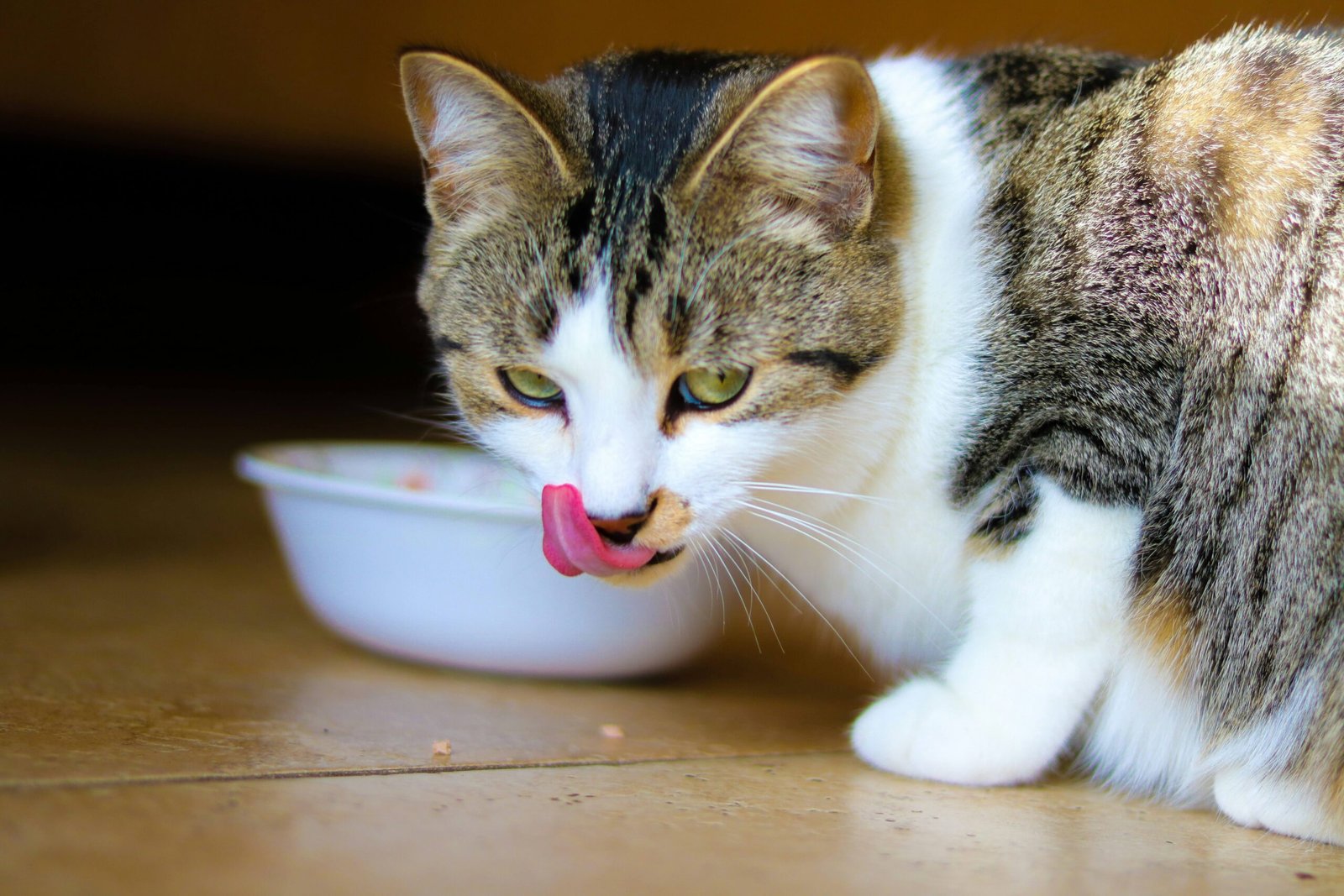Why Does My Cat Eat Everything? Unraveling the Mystery Behind This Peculiar Behavior
Cats are known for their curious nature and quirky habits, but what happens when your feline friend starts munching on things they shouldn’t? From socks to houseplants, some cats seem to have an insatiable appetite for non-food items. While this behavior can be amusing at times, it may also signal underlying issues that need attention. In this blog post, we’ll explore why your cat might eat everything in sight, whether it’s normal, and how to address it. Whether you’re dealing with a playful kitten or a mischievous adult cat, understanding this behavior is key to keeping your furry companion happy and healthy.
Common Reasons Why Your Cat Eats Everything
Cats eating unusual objects isn’t always random—it often stems from specific triggers. Here are some of the most common reasons behind this behavior, along with insights into what might be driving your cat’s appetite.
Curiosity and Exploration :
Cats use their mouths to explore the world, especially kittens who are still learning about their surroundings.Boredom or Lack of Stimulation :
Without enough mental or physical activity, cats may turn to chewing on objects as a form of entertainment.Pica Disorder :
Pica is a condition where cats compulsively eat non-food items, often due to nutritional deficiencies or stress.Teething in Kittens :
Young cats may chew on objects to relieve discomfort during the teething phase.Attention-Seeking Behavior :
Some cats learn that chewing on certain items gets them noticed by their owners, reinforcing the habit.
Understanding these reasons can help you identify whether your cat’s behavior is harmless curiosity or something more serious that requires intervention.
Signs That Your Cat’s Eating Habits Might Be a Problem
While occasional nibbling on non-food items might not be alarming, there are signs that indicate your cat’s behavior could be problematic. Here’s what to watch out for to determine if further action is needed.
Frequent Vomiting or Choking :
If your cat frequently vomits or shows signs of choking after eating unusual items, it could indicate a blockage or digestive issue.Weight Loss or Poor Appetite :
A sudden drop in weight or refusal to eat regular food might suggest a deeper health concern.Damaged or Missing Items Around the House :
Finding chewed-up shoes, shredded paper, or other destroyed items can signal compulsive eating behavior.Lethargy or Irritability :
Changes in energy levels or mood may accompany excessive chewing or eating of inappropriate objects.Obsessive Focus on Specific Materials :
If your cat repeatedly targets one type of material, like fabric or plastic, it could indicate pica or another behavioral disorder.
If you notice any of these signs, it’s important to address the issue promptly to prevent potential harm to your cat’s health.
Check this guide 👉Why Does My Cat Eat Too Fast and Throw Up? Best 7 Tips!
Check this guide 👉Why Is My Cat Eating My Hair? Best 7 Expert Tips!
Check this guide 👉The Fascinating World of Cat Eating Habits: Best 7 Tips!

Normal vs. Abnormal Eating Behavior in Cats | What You Can Do About It |
|---|---|
Occasional curiosity-driven nibbling | Provide safe toys for exploration |
Teething-related chewing in kittens | Offer dental-safe chew toys |
Boredom or lack of stimulation | Engage in interactive play sessions |
Frequent ingestion of non-food items | Consult a vet to rule out pica |
Obsessive focus on specific materials | Remove access to those materials |
How to Redirect Your Cat’s Eating Behavior
If your cat’s tendency to eat everything is becoming a concern, there are several strategies you can use to redirect their behavior safely and effectively. Here are some tips to guide you.
Provide Safe Chew Toys :
Offer cat-safe toys designed for chewing to satisfy your cat’s urge without risking harm.Enrich Their Environment :
Introduce puzzle feeders, climbing structures, or interactive toys to keep your cat mentally stimulated.Create a Routine :
Establish a consistent schedule for feeding, playtime, and rest to reduce boredom and anxiety.Supervise Access to Dangerous Items :
Keep small objects, electrical cords, and toxic plants out of reach to prevent accidents.Reward Good Behavior :
Use treats or praise to reinforce positive behaviors, such as ignoring inappropriate items.
By implementing these strategies, you can help steer your cat away from harmful habits while encouraging healthier alternatives.
Preventive Measures to Keep Your Cat Safe
Preventing your cat from eating dangerous objects requires proactive measures to ensure their environment is both stimulating and secure. Here’s how you can safeguard your home and your cat’s well-being.
Cat-Proof Your Home :
Store hazardous items like rubber bands, strings, and small objects in closed drawers or cabinets.Offer Nutritious Food Options :
Ensure your cat’s diet is balanced and meets all their nutritional needs to reduce cravings for non-food items.Regular Vet Check-Ups :
Schedule routine visits to monitor your cat’s health and catch any underlying issues early.Provide Mental Stimulation :
Rotate toys regularly and introduce new activities to keep your cat engaged and entertained.Monitor Behavioral Changes :
Stay alert to shifts in your cat’s eating habits or overall demeanor, which could signal emerging problems.
Taking these preventive steps can significantly reduce the risk of your cat ingesting harmful items and promote long-term health and safety.
Understanding the Role of Diet in Your Cat’s Eating Behavior
Your cat’s diet plays a crucial role in shaping their eating habits. If they’re not receiving adequate nutrition, they may turn to unusual items in an attempt to fill the gap. Here are some dietary considerations that might influence your cat’s behavior.
Nutritional Deficiencies :
A lack of essential vitamins or minerals can drive cats to seek nutrients from unconventional sources.Low-Quality Food :
Highly processed or filler-heavy diets may fail to satisfy your cat’s nutritional needs, leading to cravings.Hydration Levels :
Cats often mistake thirst for hunger, which might result in them eating non-food items instead of drinking water.Food Variety :
Feeding the same food daily can lead to boredom, prompting cats to explore other “tasty” options.Allergies or Intolerances :
Undiagnosed food sensitivities can cause gastrointestinal discomfort, making cats seek relief through odd eating habits.
By addressing potential dietary issues, you can help curb your cat’s tendency to eat everything and ensure they’re getting the balanced nutrition they need.
How Stress and Anxiety Influence Eating Habits
Stress and anxiety can significantly impact your cat’s behavior, including their eating patterns. Cats experiencing emotional distress may turn to chewing or eating as a coping mechanism. Here’s how stress might manifest in your cat’s unusual eating habits.
Environmental Changes :
Moving homes, new family members, or rearranged furniture can unsettle your cat and trigger stress-related behaviors.Lack of Routine :
Inconsistent feeding or play schedules can leave cats feeling anxious and seeking comfort in inappropriate ways.Competition with Other Pets :
Multi-pet households may create tension, causing some cats to act out by eating strange objects.Separation Anxiety :
Cats left alone for long periods may develop anxiety, leading to destructive or compulsive behaviors.Noise or Overstimulation :
Loud sounds or chaotic environments can overwhelm sensitive cats, pushing them toward stress-induced habits.
Identifying and minimizing sources of stress can help reduce your cat’s urge to eat everything and promote a calmer, happier demeanor.
Safe Alternatives to Redirect Your Cat’s Chewing Instincts
If your cat has a habit of eating everything, providing safe alternatives can redirect their chewing instincts in a healthier direction. Here are some ideas to keep your cat entertained and satisfied without risking their safety.
Cat Grass or Herbs :
Offer cat-safe grasses like wheatgrass or catnip to satisfy their craving for greens.Interactive Toys :
Puzzle toys that dispense treats can engage your cat’s mind and redirect their focus from inappropriate items.Chewable Treats :
Dental chews or freeze-dried meat snacks provide a safe outlet for your cat’s chewing urges.Scratching Posts with Texture :
Some cats enjoy the tactile sensation of certain materials—scratching posts with sisal or carpet-like textures can serve as a substitute.DIY Sensory Bins :
Create a bin filled with safe, non-toxic items like crinkly paper or soft fabric scraps for your cat to explore and chew on safely.
By offering these alternatives, you can fulfill your cat’s natural instincts while keeping them away from potentially harmful objects.
Frequently Asked Questions About Cats Eating Everything
Is it normal for cats to eat non-food items?
While occasional curiosity-driven nibbling is normal, frequent consumption of non-food items may indicate a problem.
What is pica in cats?
Pica is a condition where cats compulsively eat non-food items, often linked to stress, boredom, or nutritional deficiencies.
Can eating strange objects harm my cat?
Yes, swallowing non-food items can lead to blockages, poisoning, or other serious health issues.
How can I stop my cat from chewing on houseplants?
Place plants out of reach, use deterrent sprays, or provide safe alternatives like cat grass.
When should I consult a vet about my cat’s eating habits?
Seek veterinary advice if your cat frequently eats non-food items, shows signs of illness, or exhibits obsessive behavior.
Final Thoughts: Managing Your Cat’s Unusual Eating Habits
In conclusion, while it’s not uncommon for cats to nibble on unusual objects, persistent or compulsive eating behaviors should never be ignored. By understanding the root causes—whether they stem from curiosity, boredom, or health concerns—you can take meaningful steps to redirect your cat’s actions and create a safer environment. Remember, prevention is key: enriching your cat’s life with toys, routines, and proper nutrition can go a long way in curbing unwanted habits. If you’re ever unsure about your cat’s behavior, don’t hesitate to reach out to your veterinarian for guidance. With patience and care, you can ensure your feline friend stays happy, healthy, and out of trouble!
Do Cats Have Taste Buds? Best 7 Expert Tips! – Discover how cats experience flavors and why their taste is so unique.
Do Dogs Have Taste Buds? Best 7 Expert Tips! – Discover how dogs experience taste, their preferences, and what it means for their diet and health.
Can Cats Taste Sweet? Best 7 Expert Tips! – Discover why cats can’t taste sweetness, how it affects their diet, and tips to keep them healthy and happy.
Can Dogs Taste Sweet? Best 7 Expert Tips! – Discover how dogs perceive sweetness, which foods are safe, and tips to manage their sweet cravings responsibly.





